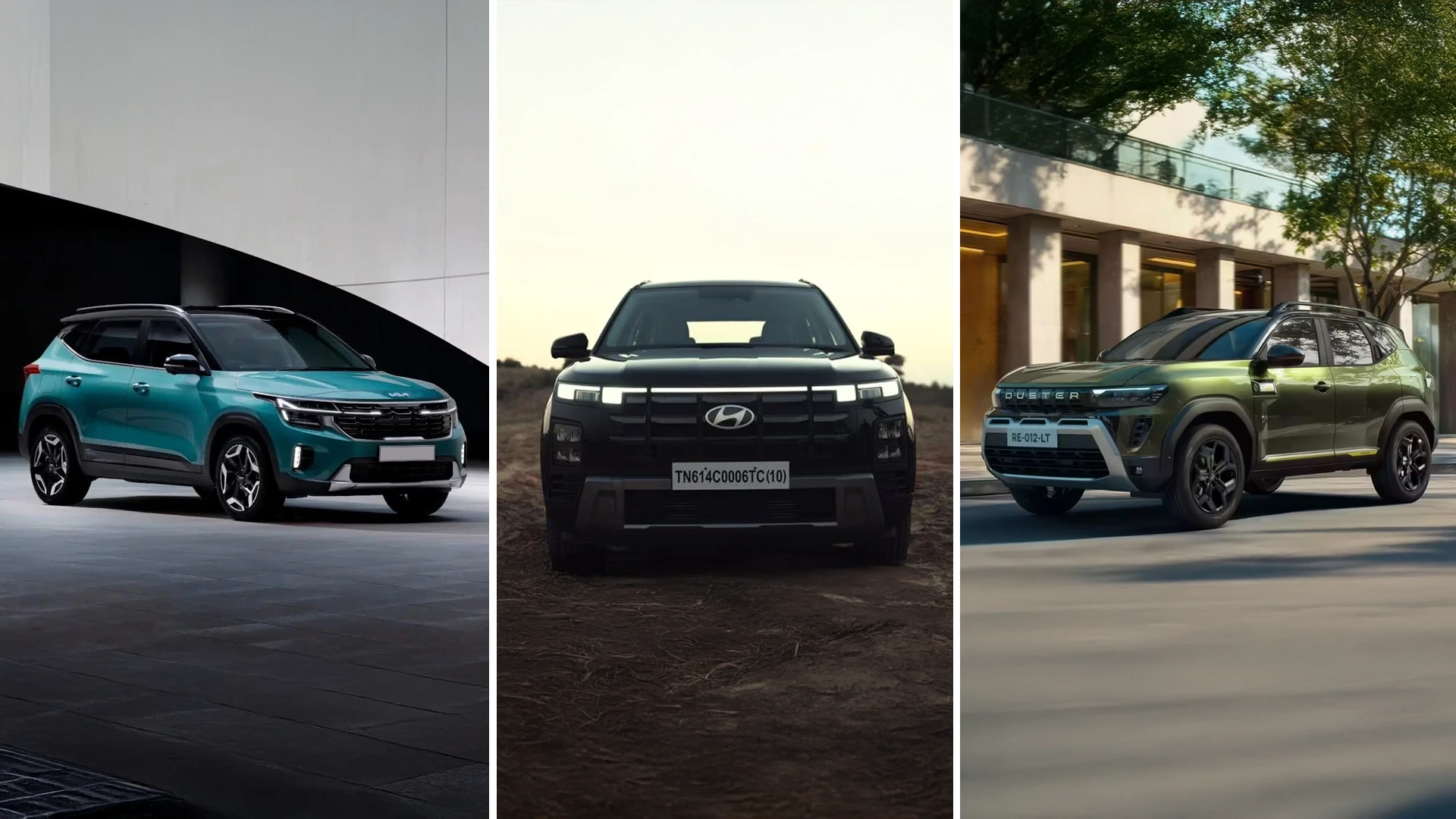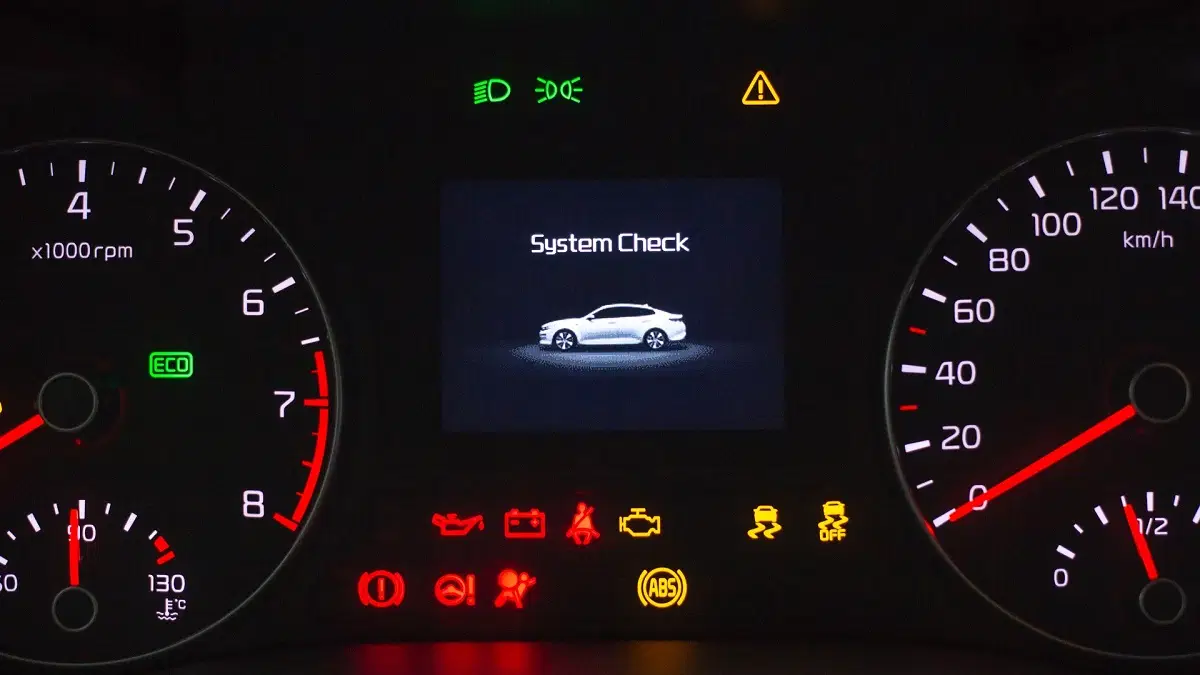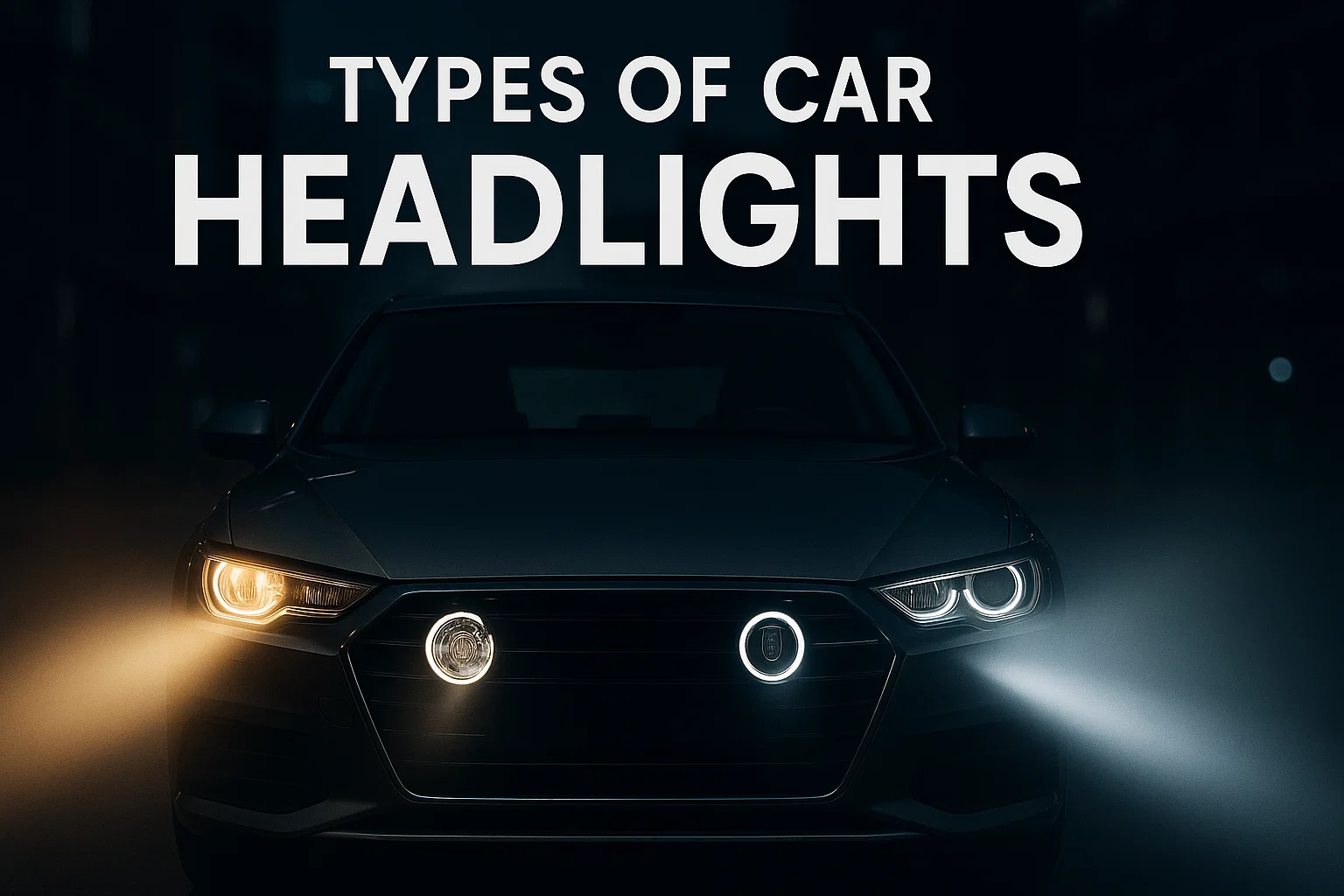
Table of Content
▼- Why Are Headlights Important?
- Types of Headlights in Car – Based on Assembly Design
- 1. Reflector Headlights
- 2. Projector Headlights
- 3. H4 Conversions
- Types of Headlights in Car – Based on Bulb Technology
- 1. Halogen Headlights
- 2. LED Headlights
- 3. Xenon / HID Headlights
- 4. Laser Headlights
- Types of Headlights in Car – Based on Bulb Count
- 1. Quad Headlights
- 2. Non-Quad Headlights
- Tips for Choosing the Right Headlights in Car
- Popular Combinations in Modern Cars
- Maintenance Tips for Headlight in Car
- Conclusion
Ever wondered why some cars light up the road like daylight while others barely manage a faint glow? The difference lies in the types of headlights you choose.
Headlights are a critical component for safe driving—especially at night or in bad weather. Understanding the types of headlights in car can help you make informed decisions, whether you're upgrading or simply replacing a bulb. This guide breaks down various headlight types based on design, bulb technology, and function.
Why Are Headlights Important?
Before diving into the technical stuff, here’s why headlights in car are non-negotiable:
- Ensure visibility at night or in low-light conditions
- Help other vehicles and pedestrians see your car
- Improve safety by illuminating the road and potential hazards
Types of Headlights in Car – Based on Assembly Design
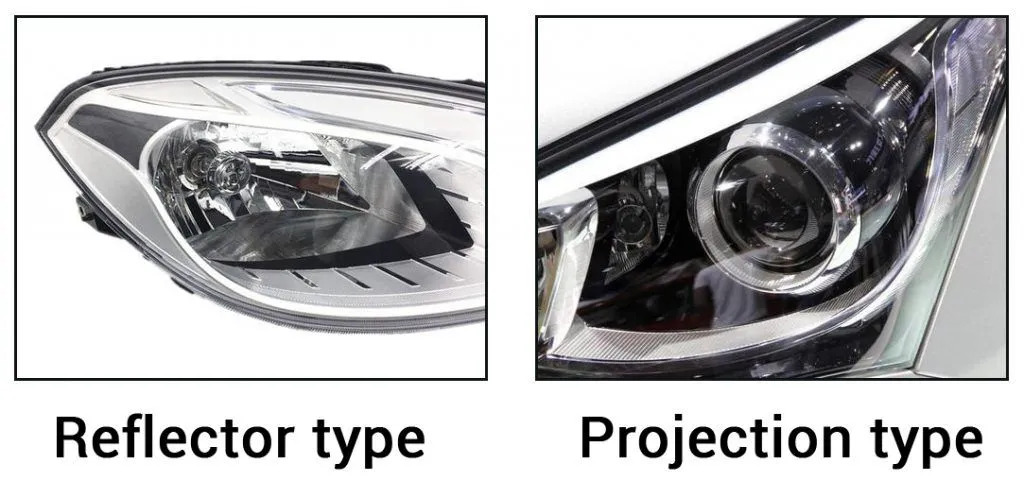
1. Reflector Headlights
These are the most traditional headlight in car design.
- Use a reflective housing to bounce light forward
- More affordable and widely available
- Simple design, but may cause glare to oncoming traffic
Pros:
- Cost-effective
- Easy to replace
- Lightweight
Cons:
- Uneven light spread
- Less stylish compared to newer designs
2. Projector Headlights
A more modern bulb headlights in car setup, these use a lens to focus light.
- Produces a sharp, concentrated beam
- Reduces glare significantly
- Often found in premium cars
Pros:
- Better road focus
- Stylish appearance
- Enhanced safety at night
Cons:
- Higher cost
- Complex installation
3. H4 Conversions
This type is ideal for car owners who want better lighting without replacing the whole system.
- Works with stock headlamp fittings
- Can upgrade just the low beam
- Improves visibility affordably
Types of Headlights in Car – Based on Bulb Technology
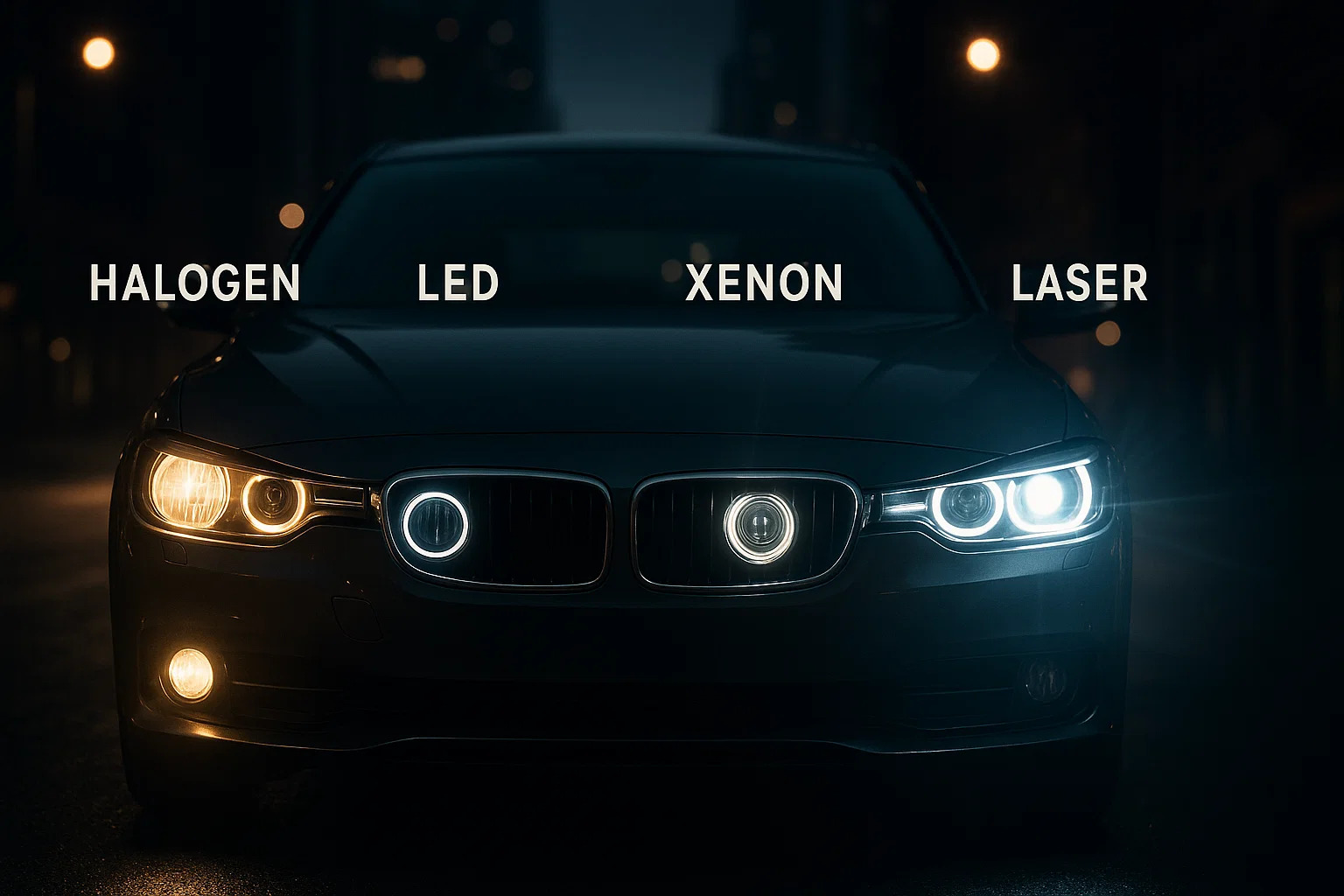
1. Halogen Headlights
The most common bulb headlights in car, halogen lamps use tungsten filaments in a halogen gas environment.
Key Features:
- Yellowish light (approx. 3,000 Kelvin)
- Easy to find and replace
- Compatible with most vehicles
Pros:
- Low cost
- Easy DIY replacement
- Widely available
Cons:
- Burns hot
- Shorter lifespan (450 to 1,000 hours)
- Yellow hue isn't ideal for night vision
2. LED Headlights
LED headlights in car have become increasingly popular for their brightness and energy efficiency.
Working Mechanism:
- Electrons pass through a semiconductor
- Emit photons (light particles)
- Run cooler and consume less energy
Pros:
- Extremely bright (up to 6,000 Kelvin)
- Long lifespan (10,000 to 30,000 hours)
- Modern styling options
Cons:
- Higher upfront cost
- Requires proper cooling mechanisms
3. Xenon / HID Headlights
High-Intensity Discharge (HID) bulbs are common in luxury cars.
Key Features:
- Uses xenon and argon gas
- Produces a powerful bluish-white light
- Offers superior visibility
Pros:
- Long-lasting (2,000 to 10,000 hours)
- High beam range
- Energy-efficient compared to halogens
Cons:
- Takes a few seconds to reach full brightness
- May dazzle oncoming traffic
4. Laser Headlights
The newest innovation in types of headlights in car, laser lights use chemical reactions to emit ultra-bright light.
How It Works:
- Laser beams activate phosphorus gas
- Emits intense, focused light
Pros:
- 1,000x brighter than LEDs
- Consumes less power
- Sleek design possibilities
Cons:
- Expensive (avg. $8,000–12,000)
- Requires cooling system
- Used mainly in high-beam mode
Also Read: Learning About the Various Types of Spark Plugs: Which One Is Suitable for Your Car?
Types of Headlights in Car – Based on Bulb Count
1. Quad Headlights
- Two bulbs per headlamp—one for low beam, one for high
- Offers precise beam control
- Common in sports and luxury cars
2. Non-Quad Headlights
- One bulb serves both high and low beams
- Simpler setup, more affordable
- Ideal for basic driving needs
Tips for Choosing the Right Headlights in Car
Choosing the right headlight in car isn’t just about brightness; it’s also about performance and comfort.
- Steer clear of cheap knock-off headlights that make big promises but often fall short. It's always better to invest in trusted, brand-name options for reliability and performance.
- After installing new headlights, take time to aim and adjust them properly. Misaligned lights not only reduce your visibility but can also blind oncoming drivers.
- Choose your headlight type based on your driving habits. For instance, if you frequently drive at night or on rural roads, consider upgrading to LEDs or HIDs for enhanced visibility.
- While advanced features like adaptive headlights may come at a higher cost, they offer significant benefits for those who drive often after dark.
- Don't overlook the importance of high beams. Powerful high beams are essential for safe and clear night-time driving, especially on dimly lit roads.
Popular Combinations in Modern Cars
Most new cars today feature a hybrid setup:
- Projector assembly + LED bulbs – best for modern looks and functionality
- Reflector + Halogen – budget-friendly, widely used in entry-level cars
- HID + Projector – great for luxury vehicles needing superior road visibility
Maintenance Tips for Headlight in Car
- Clean the lens regularly to avoid fogging
- Replace bulbs in pairs for balanced brightness
- Watch for dimming or flickering—signs of aging bulbs
- Use dielectric grease to protect connectors
Conclusion
Choosing from the many types of headlights in car depends on your needs, vehicle type, and driving habits. If you're a city commuter, halogens may do the job. But if you’re a highway driver or frequently travel at night, investing in LEDs or HIDs can significantly boost visibility and safety.
With technology evolving fast, bulb headlights in car now offer more than just illumination—they enhance design, safety, and overall driving experience.
Also Read: Busting Common CNG Cars Myths: What You Should Know
Karan Bhatia
Karan Bhatia is an automobile expert and reviewer with 8+ years of experience test-driving cars, bikes, and EVs. He provides honest, detailed, and practical reviews that highlight performance, design, safety, and value for money. His expert insights help readers make confident choices when buying their next vehicle.
_1770372474.webp)
